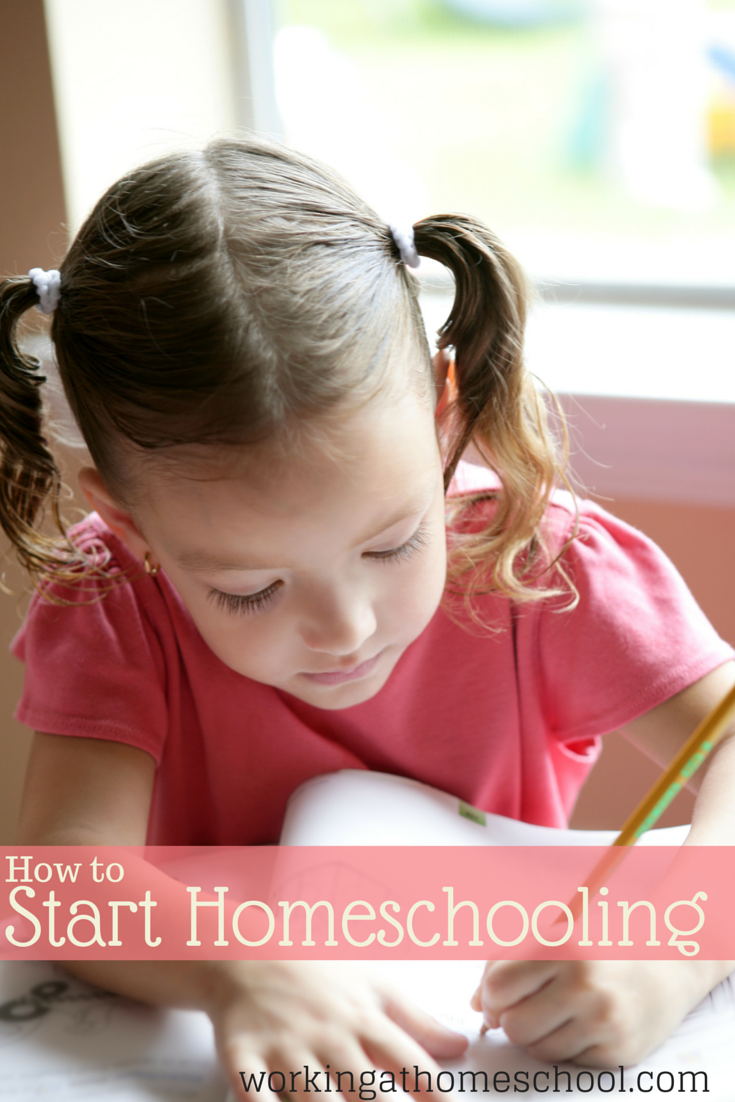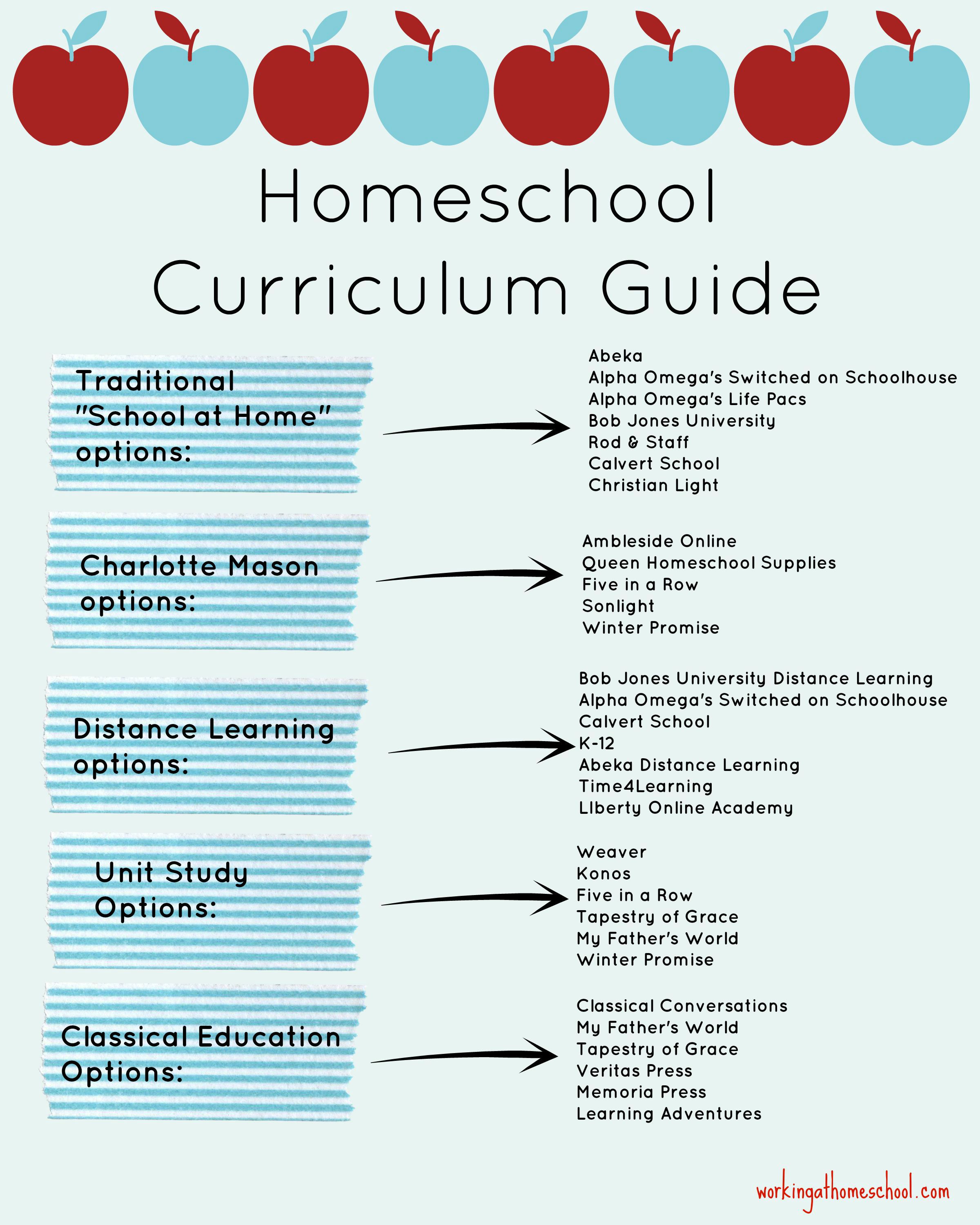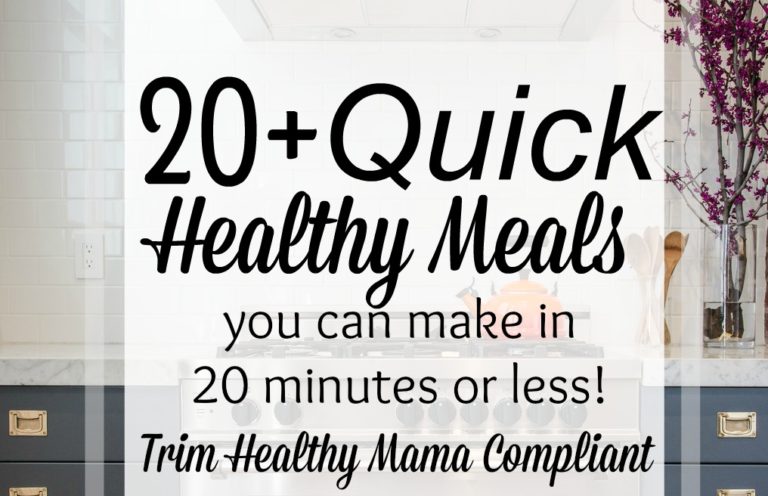Ten Tips to Start Homeschooling
When I had a four-year-old and a one-year-old, I was gung-ho about homeschooling and ready to jump in. I remember meeting with some experienced homeschool moms from my church, listening to them talk, and feeling like I was an outsider – I had NO IDEA what they were talking about! Fortunately, these homeschool mamas clued me in, and I regained my confidence quickly. But then I ran into several problems – what should I buy? Where should I start? Advice from these experienced moms, along with my own experience, helped me to create this list for the homeschool newbie – the mom who wants to homeschool, but doesn't know exactly where to start. Here are ten steps to start homeschooling – no pressure involved, just some general directions to get you started!
1. Research the homeschool laws in your state (HSLDA is the resource I use).
2. Set your goals and priorities – As a Christian homeschool mom, my number one goal is to teach my kids about Jesus. At the end of the day, if they learn to solve a math problem but learn nothing to help them in their walk with Jesus, I have not met my goal, or even prioritized my number one goal. So I try to always keep my number one goal in mind.
This is my list of homeschool goals for my kids:
- Teach them to follow Christ;
- Teach them to get along (this is critical, because we are together so much. If my kids are constantly bickering, our home is not a pleasant place to be and it's very difficult to get anything done);
- Teach them to be lifelong learners;
- Give them a strong classical education.
Your list may look completely different. But I know for certain that without a list of goals, I would be lost! It is very difficult for me to accomplish every single thing that I set out to do with my five children. But if I can look at my goals, and see that I made at least some headway towards my number one goal, it keeps me going.
3. Consider your teaching style – If you've never taught before, this can be a tricky thing to evaluate. Do you think you would prefer to read a script when you're teaching? Would you mind grading papers, or would you prefer to evaluate your kids' skills in another way?
4. Consider your kids' learning styles – Do they like worksheets? Do they get excited about projects? Do they love art? Do they need to move while they learn? Do you think they would learn more from a video, or from one-on-one instruction? If you're teaching a very young child, I'd urge you to consider a gentler approach. I bought a curriculum program for my preschooler and deeply regretted it – it was expensive and did not encourage a love of learning at all. Now we do preschool in a totally different way, and we love it! Check out “Homeschool from the Target Dollar Spot” for some ideas. I've gotten TONS of great, low-pressure school ideas from Debi Pearl's Big Book of Homeschooling, too.
5. Now, remember that your kids' background will make a difference in your school choices – Are they coming from a brick-and-mortar school setting? If so, you may want to consider online distance learning (we've enjoyed Bob Jones University Press Distance Learning in the past), or other homeschool videos or computer-based teaching. I only mention these as options because they may seem more familiar to a kid who's been in a classroom (and easier on you for your first year of teaching).
6. Some parents find themselves recreating the traditional school setting in their own homes. This doesn't always work, but if you're transitioning from a traditional school environment it may be the way you want to go. Some kids get bored easily and like the unit study approach, some like bookwork, some love the Charlotte Mason no-pressure approach to homeschooling – it varies from parent to parent and from student to student. Think about which method appeals to you the most, and which would work best for your student. I have a post here about Choosing the Right Homeschool Curriculum, which lists some websites I check out before I purchase a curriculum.
7. Based on #s 2-6, determine which curriculum will work best for you. I have a great list of 15 ways to save money on homeschool curriculum that may help you out! Alternatively, you can pick and choose your books for each subject. We have previously used My Father's World, and loved it. We still follow the classical education method, but now I use the books suggested in:
| The Well-Trained Mind by Jesse Bauer and Susan Wise Bauer. |
That means that we don't get a big box of books with a teacher's manual at the beginning of the year. Instead, I plan my own lessons. My kids do history, science, and art together (with varying levels of difficulty), and they separate for math and language arts. Remember that some boxed curriculum sets do not include everything, so make sure you get what you need! For example, the older elementary grades in My Father's World do not include math and language arts, so we purchased those separately. Keep an eye out, and make sure you know exactly what you're getting so that you're prepared for additional purchases.
I made a graphic to show how I think some of the more popular homeschool choices are categorized:
8. Once you've chosen and purchased your curriculum, decide if you need a planner, and pick your start and end dates. If your curriculum comes with an extensive Teacher's Manual, you probably don't need anything. If you do need a lesson planner, I highly recommend the Erin Condren Teacher Lesson Planner (and you can get $10 off with this referral code). If you need help planning your school year, I have some resources here:
A Stress-Free Approach to Scheduling Your Homeschool Year
9. Choose your homeschool space – I actually think this is one of the least important choices you'll make. My opinion may not be popular, but we've homeschooled in a tiny dining room with a little bookshelf, and we've homeschooled in a dedicated, decorated office that was set up like a classroom. I was so thankful for that classroom…but we didn't last the school year there before we ended up sprawled all over the house. So don't be discouraged if you create an awesome learning space and end up at the kitchen table, instead. You just never know what will feel more natural and inspire creativity.
10. Get ready – physically and mentally! You'll need curriculum, you'll need pencils, you'll need glue – but you'll also need to be mentally prepared. Support from your family and friends is a great benefit, but not a must. If you can find a local group of homeschool moms, that may be the best support you'll find, and that's okay! It's very encouraging to me to meet with other homeschool moms from my church and ask questions, or get some ideas.
Please remember that for me (and every other homeschool mom I've spoken to), the first year homeschooling is the hardest. Seriously. You may want to march your kids down to the local public school and drop them off. You may call your husband in tears (I did this more than once the first year). You may struggle, you may miss your alone time (if you're used to your kids being away at school during the day). But I have seen firsthand that the rewards far outweigh any hardships of homeschooling. Seeing that “A-ha!” moment when your kids learn something, or watching them discover a passion, or develop career plans at the ripe old age of ten – it's all amazing. And so worth it. So to conclude, PLEASE don't give up! Realize that if something's not working, you can change it – that's one of the best parts of homeschooling your kids. You can tailor curriculum, projects, and plans to your child's needs. You've got this, Mama! And if I can help, or pray for you, or answer a question, or listen to you vent – send me a message! I'd be happy to do any or all of the above.
I hope this gives you some ideas for getting started! I'll be praying for many wonderful blessings in your first year of homeschooling!
Linked up at Weird Unsocialized Homeschoolers
 Copyright secured by Digiprove © 2015
Copyright secured by Digiprove © 2015





Some of my favorites are not on there so I wanted to share them in case it helps someone: for reading All About Reading got my reluctant reader to loving reading and all 3 of mine now ask to do reading first.
For Math: we all love Math U See which has a short instructional video for each lesson that we watch together on Monday then they work through the lesson all week and I know how to help them in the right way. I’ve actually gotten faster at math since starting this program.
Those are great tips, thank you!
I am considering homeschooling. I read that you do year round homeschool. Can you tell my why? Also what is your yearly schedule like? Have you ever done a schedule that was not year round. How did you like that in comparison to what you do now?
Hi Jennifer! We do year-round school because we like to take four weeks off over the holidays, and we follow a six weeks on/one week off model throughout the year. That way we get to take breaks when we want to (and need to!) without getting behind, and we avoid burnout. By homeschooling for some of the summer weeks, we also make sure that if something fun comes up like a special trip or opportunity, we can go for it without getting behind. We do follow a lighter schedule in summer and get up earlier so we can enjoy the nice weather. We did do a traditional school year schedule for the first three years of homeschool, but I kept falling behind with illnesses and such. Finally, a friend who was a public school teacher told me that she had never, in over 14 years, completely finished a curriculum in her classrooms, and she didn’t know of other teachers who had been able to, either. That was such a relief to me because I felt so much self-imposed pressure to finish each and every book! Just giving myself mental permission to be OK with not getting to that last chapter made it a lot easier on me. That first year of year-round school was nice because we discovered that we could hit the museums and parks and pool when other kids were still in school, then stay home and work when the crowds were out, and that was a great incentive, too! Sorry for writing such a long reply. 🙂
I like all year because it’s flexible. Feel like “playing hookey” today? No problem, as long as over the year you accomplish your goals. Family is sick? Can make up the time over the remainder of the year, etc.
Sorry another question. What are the two businesses you do in addition to homeschooling?
I work part-time from home as a public relations consultant and I spend 18-25 hours a week on this website.
Praise Our Lord Jesus Christ. Thank you so much for being a blessing to me and an answer to our prayer. I have a 4 year old daughter and my husband and I decided even before she was born that we would homeschool her. Sometimes it gets a little overwhelming; the “What should I do first?” and “Where will I get this or that?”, so thank you for the awesome info. Your website is extremely helpful and well thought through. When you said… Set your goals and priorities – As a Christian homeschool mom, my number one goal is to teach my kids about Jesus. At the end of the day, if they learn to solve a math problem but learn nothing to help them in their walk with Jesus, I have not met my goal, or even prioritized my number one goal…you just spoke to our hearts. Excited to glean and grow from your wonderful work. May Our Heavenly Father continue to sow into you and your family, and may your harvest be plenteous. <3 🙂 Thank you
Thank you so much for your sweet words and encouragement! Homeschooling can always feel overwhelming – I think to everyone! – which is why prioritizing and taking one step at a time is so important. 🙂
Your comment was a blessing to me today, thank you!
You’re very welcome 🙂
Problem is, how can I know the answers to some of your points until I’ve started already and done it for a while? Curriculum for example.
This is my first year homeschooling, 6 and 9 year old. I have no idea how to start, how to know where to start them, etc. Exactly why I’m here reading 🙂 I’m so afraid of getting behind. Thankfully I read another blog post that eased my mind a bit.
Hi! I have a 5th grader and a 3rd grader who currently go to a Christian school. I’ve been interested in homeschooling since before they were born. One idea I’m considering is taking them out of school for the third trimester and do a one trimester “trial” of homeschooling. I would like to know if you have any thoughts or suggestions. Will it be difficult to jump in 2/3 of the way through a school year? Can I just complete the curriculum they do at their school? I volunteer and sub at their school, so I am familiar with the books they use.
A one semester trial might be a little difficult, because I always tell new homeschooling moms that it’s so important not to judge homeschooling by the first three months. A lot of that time is spent adjusting and figuring out schedules, routines, and practices that work best for you and your kids. I don’t think jumping in part of the way through a school year would be that difficult, though!
I’m just starting to look into homeschooling and I found your blog on Pinterest. These tips are so helpful and made me feel more confident about being able to do it. Thanks!
Thank you so much for this great information and plethora of resources. We have homeschooled 5 years and love it. I’m wondering if the graphic, Homeschooling Curriculum Guide, could also mention that My Father’s World is a Charlotte Mason style approach as well? We use them, and they have 3 main styles (if you go to their about page) Charlotte Mason, Classical and Unit . I have several people currently asking about curricula and when I’ve shared your graphic that has been a question they’ve actually asked me.
Blessings to you and your family as we approach this next school year!